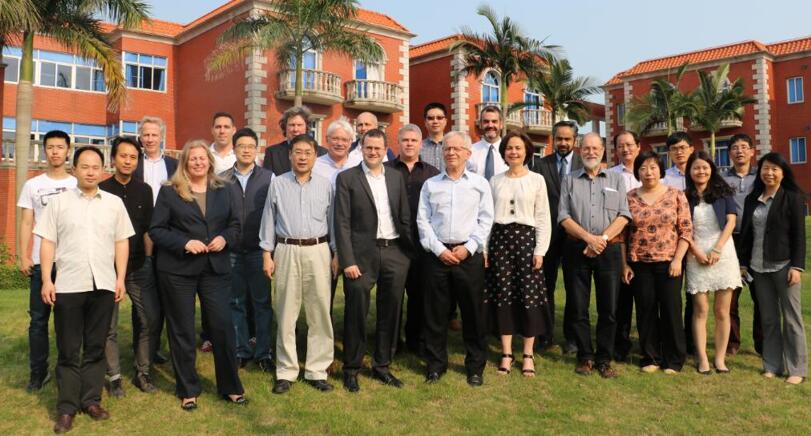From Apr 28-29, 2016 international experts from China, Europe and Asia-Pacific met in Xiamen, China to discuss how to address the threats to human health in a rapidly changing urban environment by different approaches to modeling.
The workshop was hosted by the Institute of Urban Environment of the Chinese Academy of Sciences, headed by Prof. Yong Guan Zhu; it was organized by the “Urban Health and Wellbeing: a Systems Approach” programme of the International Council of Science (ICSU), managed by Dr. Franz Gatzweiler, and moderated by Prof. Roderick Lawrence from the University of Geneva. The experts discussed the role of models for a better systemic understanding of urban health threats such as air pollution, infectious and lifestyle diseases, such as obesity, cardiovascular diseases, antibiotic resistance and the urban heat island effect, which exacerbates respiratory problemsand can cause heat stroke, exhaustion, and heat-related mortality. Rapid urban environmental change combined with climate change is a real threat to peoples’ health and wellbeing causing thousands of premature deaths every year.
The challenges urban decision makers are confronted with are immense and require intelligent solutions and support from complex system modelers. The outcomes of those models are however not easily understood, communicated and implemented.
Apart from scientists, representatives from science funding organizations, local municipalities, the media, non-governmental organizations and investors discussed the challenges of communicating and implementing the results of urban health models. Participants found common ground on the need of including local people in modeling urban health issues and the need of education and capacity building for societal processes which support integrative and inclusive decision making for urban health. There is a great divide between what urban health scientists are capable of modeling and the capacity of people to decide on what they value and what matters to them for achieving health and wellbeing.
China’s goal of building an ecological civilization and the circular economy and the global sustainable development goals require systems approaches in science and society. If scientists want to be helpful in responding to the emerging urban health risks, transferring of scientific knowledge is necessary but not sufficient. Both need to actively engage and support local action. Participants of the dialogue agreed on collaborating in the design of a training programme, a model project in China and to publish the core messages of the dialogue in diverse media. The programme on Urban Health and Wellbeing: a Systems Approach, with its programme office located in Xiamen, will be a hub for coordinating activities.
Author: Franz Gatzweiler Contact: franz@iue.ac.cn
Links:http://news.xinhuanet.com/english/2016-04/30/c_135325376.htm
